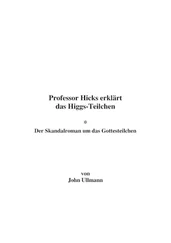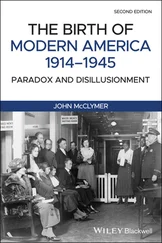A court martial was arranged. The military trial in the elegant, wood-panelled room, with the officers in full dress uniform, their sabres laid on the table, was just the sort of event that had initially attracted Tim to West Point. The court examined all the evidence regarding the forbidden drinking session, and declared that there were no grounds for dismissal of Leary from the service. But he was still guilty of defiance. As punishment, he would be ‘silenced’.
Being silenced, or ‘sent to Coventry’ as it is also known, is a military punishment that effectively turns a recruit into a non-person. The victim is ignored, and the rest of the squadron are forbidden to speak to or acknowledge him. Tim’s roommates were moved into new sleeping quarters and he had to sit alone in the mess hall, surrounded by empty seats. It is a harsh punishment, similar to being jailed in solitary confinement while simultaneously having to undergo the rigours of regular training. Few people can take it for long. To make matters worse, the Honour Committee planned to get rid of him by ‘demeriting’ him. His every action was scrupulously studied for signs of failure. He was written up for ‘untrimmed hairs in nostrils’. A shaving cut was cited as ‘careless injury to government property’. 2
It may have been the injustice of his punishment that inflamed Leary’s stubbornness. It may have been a test of personal integrity, or it may have been nothing more than sheer bloody-mindedness, but despite now having no hope of a military career, Tim took this punishment and stayed in the academy. He refused to let it beat him. Months passed.
This was not what was supposed to happen. The point of silencing someone is that they will, sooner or later, break down under the treatment. Cadets are not supposed to be able to keep going, especially when, like Leary, they are in their first year and still have over three and a half years to serve. Leary threw himself into reading and sports. The strain turned him into a chain smoker, but he still won the long-distance run and competed at baseball.
In due course he became a sophomore, a third classman in the West Point system. The new influx of cadets saw him and started asking questions about his treatment. The last thing the military wanted was an influx of recruits who start questioning the system. Senior cadets were starting to speak out, too. As time went on, the judgement of the Honour Committee began to look more and more questionable. In August 1941, after nine months of silencing, Leary was approached by a pair of cadet officers who were acting as unofficial go-betweens for the Honour Committee. They asked him what his terms would be to leave West Point.
Leary replied that he would need a written statement of his innocence from the Honour Committee, and he wanted it read out publicly. After a couple of days, this was agreed to. The Cadet Adjutant called for silence during lunchtime in the mess hall, and read out the brief statement of innocence to an unprepared audience. At first there was a stunned silence, and then applause from some of the braver cadets. After lunch Leary packed his bags and left.
When Tim told this story in later years, he framed it as a terrific victory, a triumph of one innocent man’s will against a seemingly unbeatable bureaucracy. Ultimately, of course, he had been rejected by the army and his peers, and had been forced to resign. Yet he found a perspective on events from which he could view his failure as a personal success. He had rejected the consensus viewpoint of the Honour Committee and instead invested his own point of view with a greater level of importance. He had learnt that it was possible to position a defeat in such a way that it appeared to be a success. There is much in this incident that seems to foreshadow the path his life would take, from the forbidden substance to his willingness to fight authority. But it was his ability to choose the way he viewed the events that was perhaps most indicative of what was to come. That and the realisation that the personal cost of a fight like this could be extremely high.
Forbidden alcohol at West Point had previously played a different, more fundamental role in Tim’s life. He had been conceived on the base following a dance at the West Point Officer’s Club. 3 It was 17 January 1920, the day after Prohibition had made alcohol illegal, and his parents were loosened by bathtub-distilled gin.
His newly married mother, Abigail Ferris, was not accustomed to behaving loosely. The Ferris family were farm gentry from the village of Indian Orchard, Massachusetts. It was a strongly Catholic household, full of religious art and books, but years of social respectability had given the family’s religion a puritanical, almost Protestant ethic that differed from normal Irish Catholicism. Abigail was extremely devout and is said to have attended Mass daily. There were no wild parties in the farmstead, no drinking or dancing or merriment. The family was ruled by a series of pious spinsters. Men were not to be trusted, and sex was too horrific to contemplate. Abigail’s sister Mae wept for three days when Abigail got married, and begged her not to go on honeymoon. Tim’s father never visited the Ferris homestead.
The Learys were polar opposites. They were city dwellers in Springfield; rich, sophisticated and fun. They were among the first generations of Irish immigrant families to rise up and become professionally respectable. Tim’s grandfather was a professor at Tufts University, and became the medical examiner for Boston. He had significant real estate holdings and was thought to be the richest Irish-American in western Massachusetts. Like the children of many a wealthy patriarch, the younger generation of Learys veered more towards hedonism than enterprise. There were affairs, intrigue and glamour. Gossip and laughter were more common than religion or worry.
Tim’s father, also named Timothy but commonly known as ‘Tote’, gradually slipped into alcoholism after Tim was born. After West Point he practised dentistry, but although he was successful enough to become General Eisenhower’s dentist during World War II, it seems to have been a career that he had little enthusiasm for. He knew that he would be a wealthy man when his father died, and the drink helped the years to pass by while he waited. Tim grew up, caught in the culture gap between the two sides of his family. It was to the Leary side that he was most attracted, and the Ferrises could see this. The Leary blood in him would be a constant worry for them.
Tim was an only child and was often lonely in his earliest years. Like his father and grandfather, he was named Timothy after St Timotheus 4 and was raised as a strict Catholic. He did what was expected of him by attending mass and becoming a choirboy, but he never seemed happy or engaged by his life. He had an imaginary friend 5 for whom he would make his mother set an extra place at the table. He enjoyed the conversation of his imaginary friend and was an avid reader, but real people didn’t seem to interest him. He much preferred the cartoon character Felix the Cat, who merrily smiled and whistled throughout all his adventures. Prohibition may have made alcohol illegal at the time, but this never concerned Felix. He would usually have a glass of champagne in his hand. It wasn’t until Tim discovered sports and, later, girls that his more sociable, charming side started to emerge.
His grandfather 6 died when he was 14, and the family discovered that the wealth they had been expecting had all but disappeared in the stock market crash, family loans and poor management. Tote went out to get drunk and never returned. Tim would not see him again for 23 years.
Tote had been a poor father, but he was a strong influence. He was a charming rogue, a storyteller and a drunk who had a passionate dislike of middle-class morality and institutions. When he left he seemed to become an archetypal loner figure for Tim, a nonconformist who walked away from his life when he realised that it wasn’t sustaining him. Long-suppressed feelings of abandonment would surface many years later, during a psilocybin trip with the writer Jack Kerouac, but the overriding impact of his drunken, occasionally abusive father was that he was the first person Tim knew who was brave enough to ‘drop out’. Although there was good reason to, Tim could not bring himself to hate him for it. 7
Читать дальше












